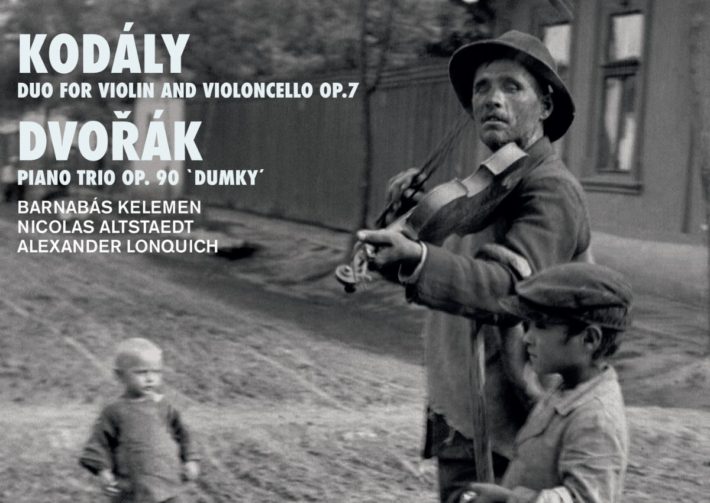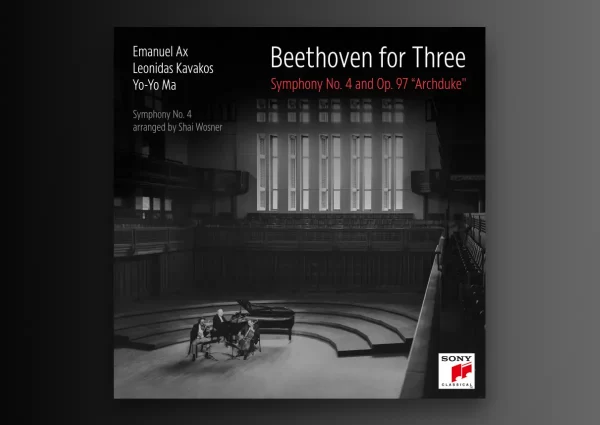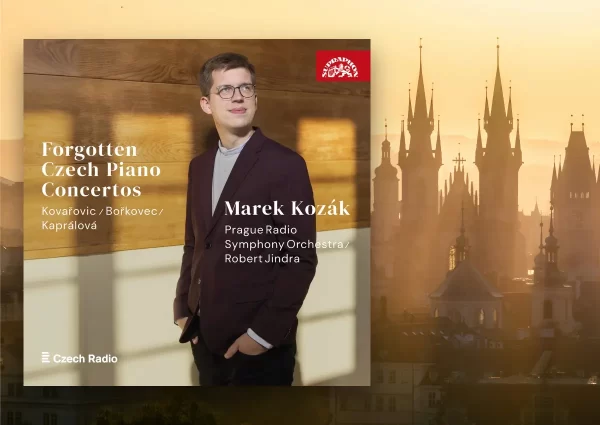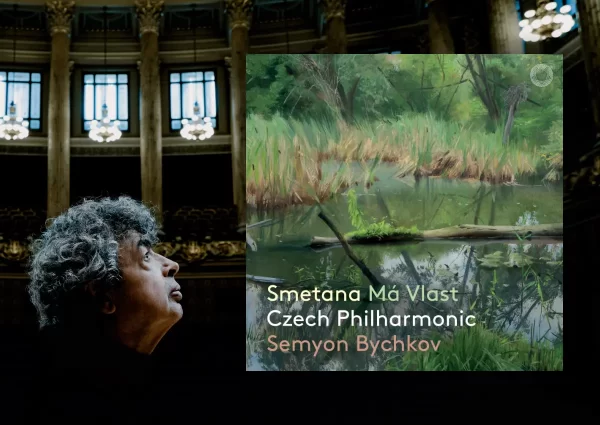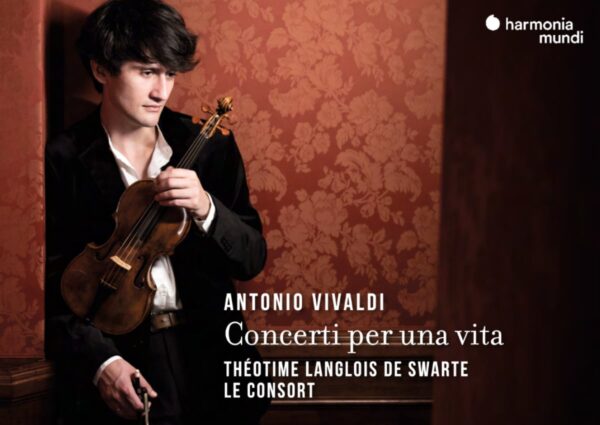All too often Dvořák’s ever poplar ‘Dumky’ trio is paired with another one of his less well-known chamber works, however, this release from Alpha complements the work with Kodály’s ‘duo for violin and cello op. 7’. The recording features violinist Barnabás Kelemen and cellist Nicolas Altstaedt who are joined by the pianist Alexander Lonquich in the Dvořák.
Kodály’s duo is given an enthusiastic performance. Dramatic and dark in the first movement, both Kelemen and Altstaedt demonstrate their strong chemistry and virtuosity. The balance between the two players is very good and allows the varying textures and timbres of the music to contrast boldly. The second movement brings a plaintiff and melancholic ambiance, fully realised by both players, while on the third they find an attractive rhythmic energy. The fourth movement is executed with precision and the folk elements have a strong and distinctive character.
Dvořák’s trio is unusually cast in six episodes and without a break. In the booklet and a promotional video, Nicolas Altstaedt explains his vision in this work. The three musicians follow this narrative with conviction. From the outset there is a formidably strong Bohemian spirit filled with song and dance, taking in everything from lament to joy.
Related Classical Music Reviews
- Review: “Bohemian Tales” – Augustin Hadelich, Violin
- Review: Bach – Sonatas and Partitas for Solo Violin – Thomas Zehetmair
- Album Review: Hilary Hahn Plays Bach (Part 2)
The opening dumka is strong and spontaneous with natural phrasing. Kelemen uses some unfamiliar accents in the violin line, which come as a surprise, but the consistent way in which they are used becomes more and more convincing. Unlike many other performers, in the brighter sections they find an uplifting and characterful joviality and fun. The slower second dumka has a nocturnal ambience, which the group revel in, portraying a magical mythical story, an important feature found in Czech folklore. This continues in the third dumka, where they find a beguiling tenderness. Their energy is relentless through to the final dumka, delivered with insight.
The chemistry between these long-term collaborators is strong and intense throughout both pieces, and accounts for the high level of attention to detail in all the phrasing and articulation. There is much nuanced playing, which avoids being fussy, but allows the music to breathe organically. The cello and violin have a richness of tone across the entire range. Their phrasing and bowing is careful and considered. This is particularly commendable and communicative in the Dvorak.
Keleman’s vibrato is used with delicacy and control. In the second movement of the Kodály the highest notes and harmonics of Kelemen’s playing waver slightly in tone. There are occasional moments in the Dvořák where the intonation on the stopped notes is marginally less secure, however, the sheer conviction of the rest of his playing more than compensates.
Throughout the album, the ambient acoustic is used to maximum effect. It is slightly resonant, but unintrusive. At the end of the sections or movements, the trio give the music space to fade without launching immediately into the next. This allows just a moment for the listener to take a breath from the intensity of their performance.
The balances of the Dvořák are very different to acclaimed renditions of this work. The hues are at some moments more radiant and others less foreboding than the Floristan Trio. Christian Tetzlaff, Tanja Tetzlaff and Lars Vogt favor the piano, bringing a very different balance in their ensemble to the new performance, who in comparison are more refined and intrinsic to the ethnomusicology.
This is a rather short album and offers a very different take on the Dvořák trio. The Kodály is a dark and intense piece. At 58 minutes this album is a demanding listen; harmonically challenging on occasions in the Kodály and impassioned throughout. What unifies both pieces is the narrative and essence of folk music that the players find in them, which make this a recommended listen.

Kodály – Duo for Violin and Violoncello, Op.7
Dvořák- Piano Trio No.4, Op.90 ‘Dumky’
Barnabás Kelemen – Violin
Nicolas Altstaedt – Cello
Alexander Lonquich – Piano
Alpha Classics / Outhere Music France, CD 737
Recommended Comparisons
Read more classical music reviews or visit The Classic Review Amazon store
Follow Us and Comment:
Get our periodic classical music newsletter with our recent reviews, news and beginners guides.
We respect your privacy.

